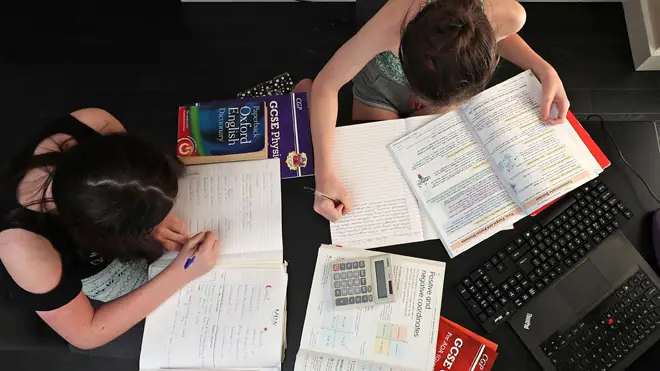
Shelagh Fogarty 1pm - 4pm
22 May 2020, 16:19

Reopening schools could increase the rate of spread of coronavirus, according to key scientific advice to the Government that was published today.
The advice from the government's scientific advisory group SAGE suggests that the effect of reopening schools depends on factors including which schools are reopened, and how the process of reopening them is carried out.
The experts said that reopening primary schools has a smaller effect on increasing the R rate than secondary schools, and letting some children attend in the morning whilst others attend in the afternoon would be safer than having schools fully open all day.
The scientists advised that the overall effect of schools reopening is considerably less than the importance of social distancing.
READ MORE: 'Independent Sage' says schools cannot safely reopen on June 1
In one scenario, scientists modelled that if schools were fully opened, and there was a 95% compliance with social distancing measures, modelling suggests the R-number might rise to around 1.5. Any R-number over one means risking a new spike in coronavirus cases.
The modelling went on to find that if schools were fully opened in exactly the same way, and there was just a 30% compliance with social distancing measures, then R could rise above 2.5.
The advice is clear that even if the effect of school closures is small, even those small changes could have a significant impact on R.
It states: “Although some scenarios for relaxing school closures may have a small relative impact, this will need to be considered within the wider context – that is, if the current reproduction number is only just below 1, then even a small change could lead to a return to exponential growth.”
R is currently estimated to be 0.7-1.
There is also contradictory evidence about how likely children are to be infected or to spread the virus, but on balance, scientists concluded that they are less at risk than adults.
They wrote: “Evidence remains inconclusive on both the susceptibility and infectivity of children, but the balance of evidence suggests that both may be lower than in adults.”
None of the scenarios modelled by scientists correspond to the one chosen by No10, namely allowing children in nursery, reception and years 1 and 6 to return to the classroom on June 1.
Listen & subscribe: Global Player | Apple Podcasts | Google Podcasts | Spotify
The National Education Union suggested Boris Johnson was taking a "cavalier attitude" towards children in response to the publication of the Sage documents.
Joint general secretary Dr Mary Bousted said: "We are surprised that the wider opening of schools proposed by Boris Johnson has not been modelled by Sage. This points to a cavalier attitude towards the nation's children.
"The fact of the matter is that Sage has only weak evidence as to what extent children can transmit the virus to others.
Several local authorities across England have said they have no plans to reopen schools on June 1.
The leader of South Tyneside wrote to the Prime Minister today to say that it is not safe to bring more pupils back to schools on June 1.
Councillor Iain Malcolm told Boris Johnson the R level is "signifcantly higher" in the North East than in London.
He wrote: "Currently South Tyneside has the third highest number of infections per 100,000 people nationally, just behind our neighbouring authorities of Sunderland and Gateshead.
"By highlighting our PHE figures to you, we ask that you recognise and reflect this when considering the science and deciding to embark on the second stage of your adjustments.
"There must be recognition of the disparity between regions and different parts of the country.
"We have been consistently told that the North East is two weeks behind our counterparts in London.
"How is it therefore possible that Government's Covid-19 Recovery Strategy takes no account of this, whilst at the same time your Cabinet Office Minister is able to confirm your complete confidence 'that children and teachers will be safe'."